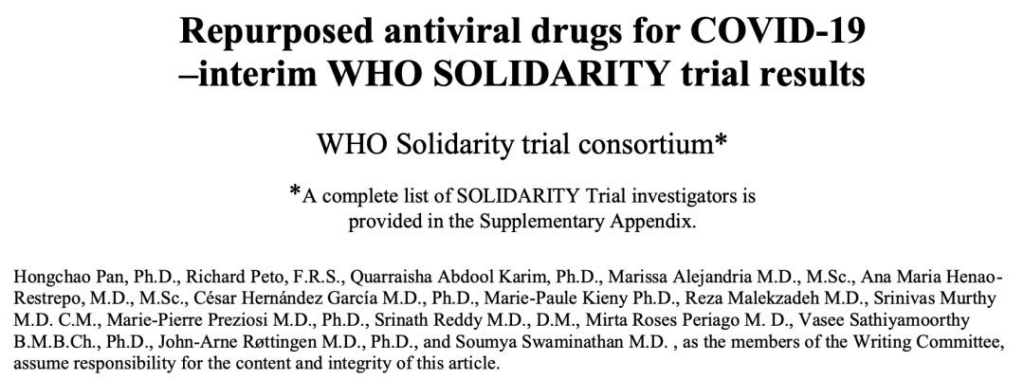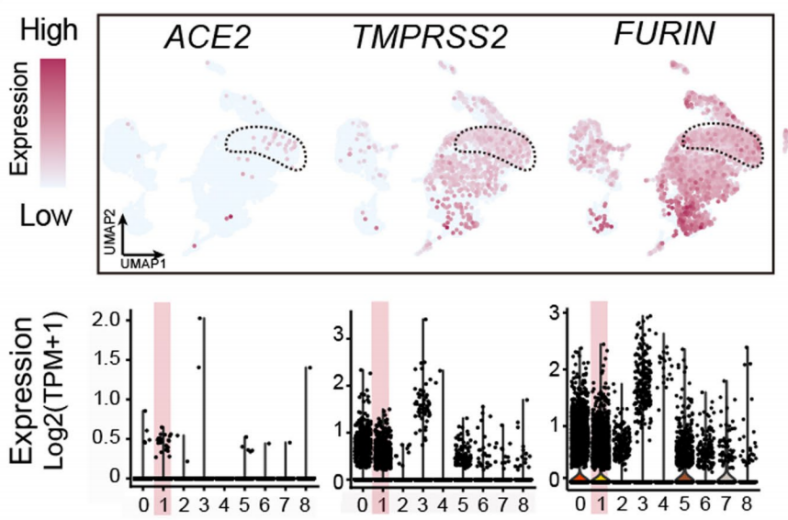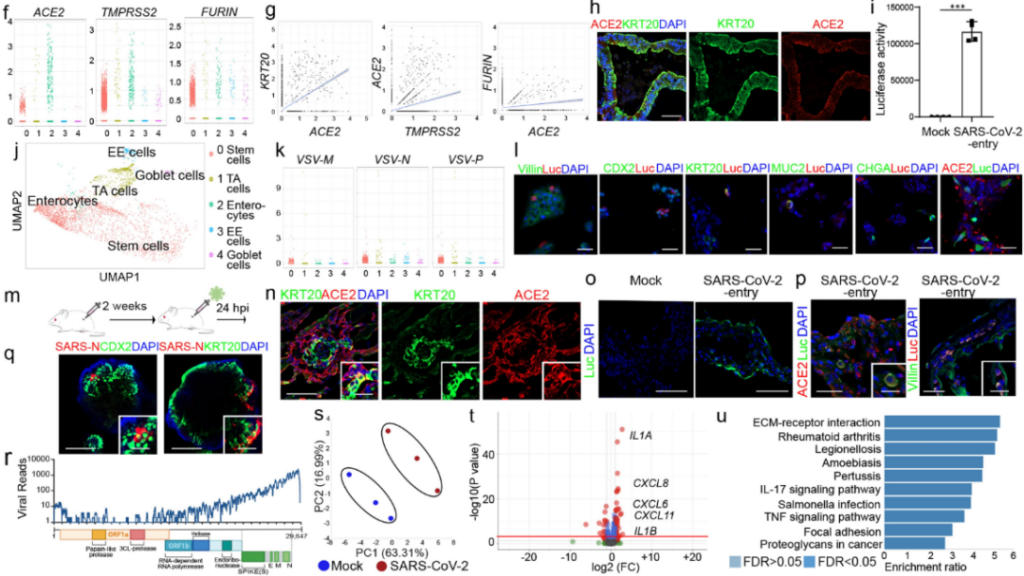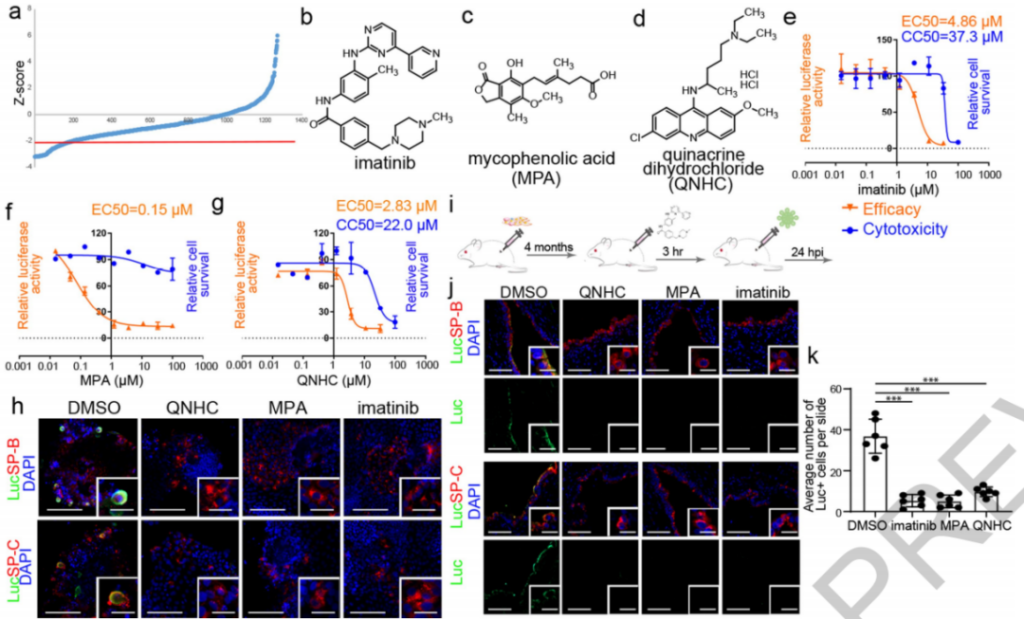Nature: Successfully screen candidate drugs for COVID-19 treatment by organoids
- Statins Lower Blood Lipids: How Long is a Course?
- Warning: Smartwatch Blood Sugar Measurement Deemed Dangerous
- Mifepristone: A Safe and Effective Abortion Option Amidst Controversy
- Asbestos Detected in Buildings Damaged in Ukraine: Analyzed by Japanese Company
- New Ocrevus Subcutaneous Injection Therapy Shows Promising Results in Multiple Sclerosis Treatmen
- Dutch Man Infected with COVID-19 for 613 Days Dies: Accumulating Over 50 Virus Mutations
Nature: Successfully screen candidate drugs for COVID-19 treatment by organoids
Nature: Successfully screen candidate drugs for COVID-19 treatment by organoids. In October 2020, the interim results of the largest global randomized controlled trial for the treatment of new coronavirus pneumonia organized by the WHO so far were published in the form of a preprint on medRxiv [1], and the New England Journal of Medicine is under review.
The results showed that 4 candidate drugs, such as remdesivir, hydroxychloroquine, lopinavir/ritonavir and interferon therapy, are basically ineffective or have little effect on new coronavirus pneumonia, and the development of COVID-19 vaccines is difficult. The lack of a humanized virus infection model to study the pathogenic mechanism of SARS-CoV-2 and methods to inhibit the virus is one of the key issues restricting the development of new coronavirus therapeutic candidates.

In the same month, Shanghai Jiaotong University, together with Weill Cornell Medical College and Icahn Medical College of Mount Sinai, published the latest important results online in the journal Nature [2]. Researchers used the lung and colon organoid system generated by human pluripotent stem cells to screen the drugs approved by the U.S. Food and Drug Administration (FDA) and identified three types that showed antiviral properties against the new coronavirus (SARS-CoV-2) Active drugs.

Studies have shown that the lung organoid model induced by human pluripotent stem cells (hPSC-LOs) can be infected with the new coronavirus and exhibit strong chemokine induction for SARS-CoV-2 infection. Studies have found that alveolar type II-like cell (AT2) markers can be highly expressed in stem cells, and the AT2-like cell population in lung organoids is highly similar to human lung AT2 cells. In addition, the key factors involved in SARS-CoV-2 entry, ACE2, SARS-CoV-2 receptor, TMPRSS2 (protease involved in virus entry), and FURIN (pre-protein converting enzyme that pre-activates SARS-CoV-2) are all in AT2-like Enriched in cells (Figure 1).

Figure 1. UMAPof ACE2, TMPRSS2 and FURIN expression in hPSC-LOs
Since nearly 25% of COVID-19 patients have gastrointestinal manifestations, scientists believe that this is related to the deterioration of COVID-19. Therefore, the researchers also constructed hPSC-derived colon organoids (hPSC-COs) to explore the response of colon cells to SARS-CoV-2 infection. It was found that a variety of colon cell types, especially intestinal epithelial cells, can express ACE2 and will be infected by SARS-CoV-2 (Figure 2).

Figure 2. hPSC-COs are permissive to SARS-CoV-2 virus infection
Subsequently, the researchers used hPSC-LOs to conduct high-throughput screening of FDA-approved drugs, including imatinib, enzyme phenolic acid, and quinacrine dihydrochloride. As a result, the researchers screened out inhibitors that can prevent SARS-CoV-2 from entering host cells. These drugs significantly inhibit SARS-CoV-2 infection of hPSC-LO and hPSC-CO (Figure 3). These data indicate that hPSC-LOs and hPSC-COs can be used as disease models to study SARS-CoV-2 infection, and provide valuable resources for screening drugs to identify candidate therapeutics for COVID-19.

Figure 3. AhPSC-LO-based high throughput chemical screen identifies threeFDA-approved drug candidates that block SARS-CoV-2 entry
Conclusion: Using organoids for high-throughput screening of FDA-approved drugs, it was found that three drugs including imatinib, mycophenolic acid (MPA) and quinacrine hydrochloride (QNHC) were treated at physiological level , Can significantly inhibit the SARS-CoV-2 infection of hPSC-LOs and hPSC-COs. Studies have shown that lung and colon organoids can be used as disease models for studying new coronavirus infections and identifying potential new coronavirus pneumonia (COVID-19) therapies, realizing high-throughput screening of drugs.
(source:internet, reference only)
Disclaimer of medicaltrend.org



